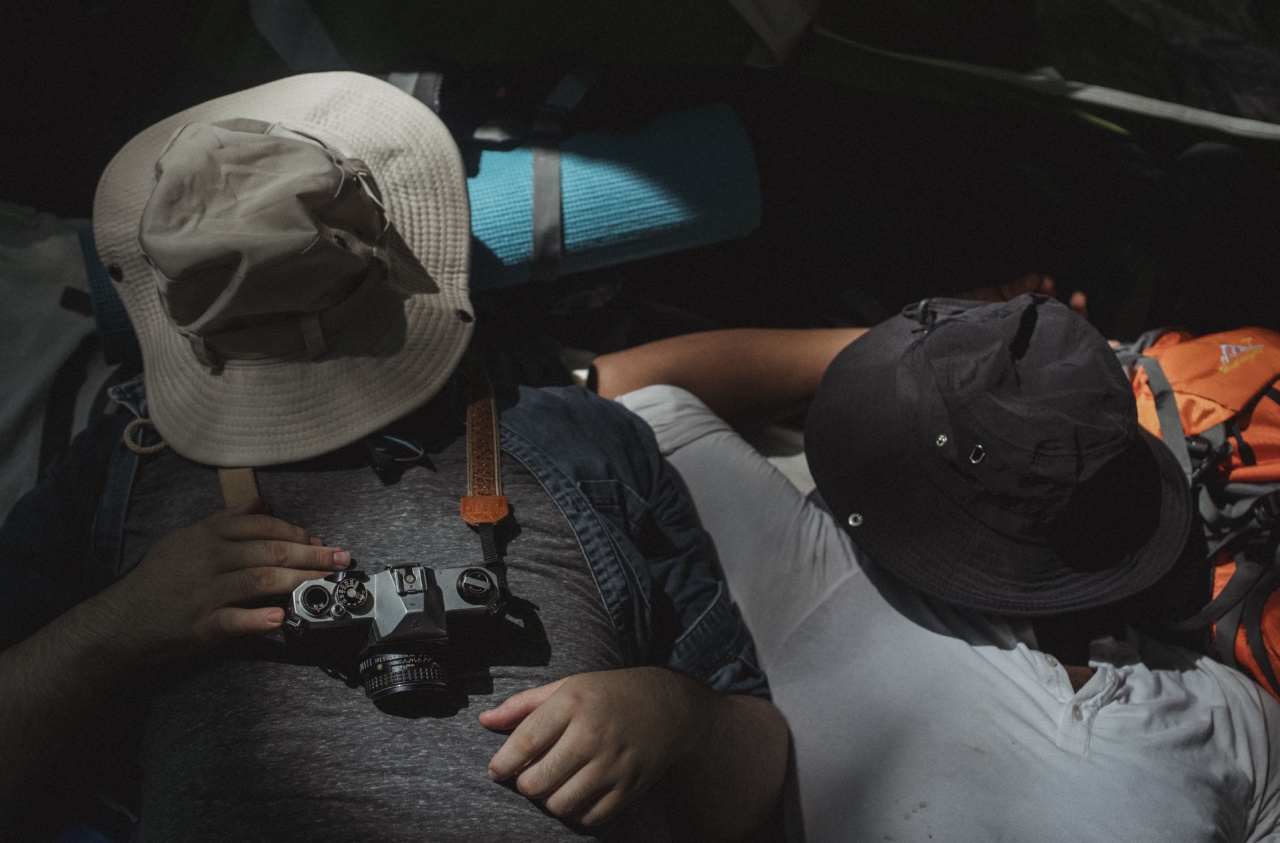Traveling can be an exciting and enriching experience, allowing us to explore new places, cultures, and cuisines. However, for many people, the joy of traveling is often overshadowed by the difficulties of getting a good night’s sleep.
Whether it’s jet lag, unfamiliar surroundings, or uncomfortable sleeping arrangements, the sleep disturbances associated with travel can take a toll on our overall well-being. In this article, we will delve into the various sleep difficulties that travelers encounter and explore strategies to overcome them.
1. Jet Lag: The Culprit Behind Sleep Disruption
Jet lag is perhaps one of the most common sleep difficulties experienced by travelers. Crossing multiple time zones disrupts our body’s internal clock, known as the circadian rhythm.
This misalignment often leads to symptoms such as daytime sleepiness, difficulty falling asleep or staying asleep at night, and overall fatigue. Minimizing the impact of jet lag is essential to ensure a restful sleep during travel.
2. Unfamiliar Surroundings: The Challenge of Sleeping in a New Environment
When we travel, we are exposed to new sights, sounds, and environments that our brains are not accustomed to. Sleeping in unfamiliar surroundings can be unsettling and make it harder to fall asleep.
Strange noises, different bedding, and changes in temperature can all contribute to a restless night’s sleep. Finding ways to create a familiar and comfortable sleep environment becomes crucial to combat this sleep difficulty.
3. Disruptions in Sleep Routine: Adapting to Change
Travel often disrupts our daily routines, including our sleep schedule. Early morning flights, late-night activities, or irregular meal times can throw our sleep-wake cycle off balance.
Lack of consistency in our sleep routine can make it difficult to establish regular sleep patterns and result in poorer sleep quality overall. Developing strategies to establish a new sleep routine while traveling can greatly alleviate this problem.
4. Time Zone Changes: Navigating Sleep Adjustments
Just as jet lag affects our sleep due to crossing time zones, adjusting to the new time zone itself can be challenging. The body needs time to adapt to the local time, and during this adjustment period, sleep difficulties may arise.
Our body may not be ready to sleep when it’s nighttime at the destination, or we may experience excessive daytime sleepiness when it’s daytime at home. Understanding how to effectively adjust our sleep schedule to match the local time zone is crucial for minimizing sleep disruptions.
5. Comfort and Sleeping Arrangements: Making the Best of It
For travelers who opt for various forms of accommodation, the sleeping arrangements can significantly impact sleep quality.
Whether it’s an uncomfortable hotel bed, a noisy hostel dorm, or a lumpy campsite sleeping bag, compromised levels of comfort can make it challenging to achieve a good night’s sleep. Exploring options to enhance the comfort levels of our sleeping arrangements can greatly contribute to overcoming this sleep difficulty.
6. Sleep Disorders and Medical Conditions: Managing Underlying Issues
Some individuals already struggle with sleep disorders or medical conditions that can be exacerbated during travel.
Conditions such as insomnia, sleep apnea, restless leg syndrome, or chronic pain can make it even harder to sleep in unfamiliar environments. Prioritizing appropriate medical management and seeking professional advice can help individuals with pre-existing sleep difficulties manage their condition effectively while traveling.
7. Strategies for Overcoming Travel-Induced Sleep Difficulties
Now that we have explored various sleep difficulties associated with travel, it’s time to discuss strategies to overcome them:.
8. Establish a Pre-Travel Sleep Routine
Prior to traveling, try to establish a consistent sleep routine that aligns with the destination’s time zone. Gradually shifting your sleep and wake times can help minimize the impact of jet lag and promote better sleep during travel.
9. Create a Comfortable Sleep Environment
Bring along familiar items such as a favorite pillow or blanket to create a sense of comfort in unfamiliar surroundings.
Using earplugs, an eye mask, or white noise machines can also help block out disruptive noises and create a serene sleeping environment.
10. Utilize Light and Dark to Reset Circadian Rhythm
Expose yourself to natural light during the day to help reset your internal clock. Avoid bright screens in the evening, as blue light can interfere with the production of sleep-inducing hormones.
Dimming the lights and winding down before bedtime can signal your body that it’s time to sleep.
Conclusion
While travel can be an incredible experience, it often comes with its own set of sleep difficulties. Understanding and addressing these challenges can greatly improve our ability to get a good night’s sleep while on the road.
From managing jet lag to creating a comfortable sleep environment, utilizing strategies to overcome these sleep difficulties will allow us to fully enjoy our travel adventures.





























